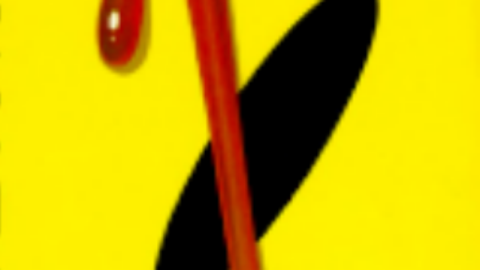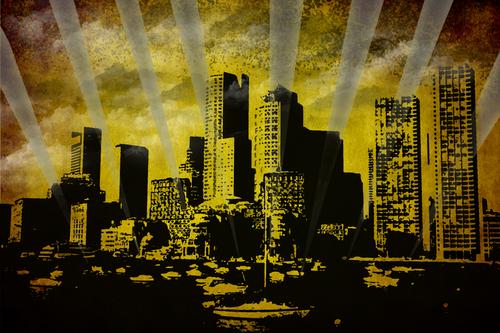‘Watchmen’ & the Necessity of Culling the Human Species

The Taboos of Alan Moore, Part 2
Regarded by many as the greatest comic book ever written, Watchmen itself broke custom: thinking it would not see reprinting – since almost no comics at the time did – Moore signed away his rights, in order to sell the book*. When it started gaining traction, the world of comics publicly appeared to change. Here was a “funnybook” you could, without embarrassment and much pride, read aloud to your English professors and give your political pundit of an uncle.
Though there’s speculation and accusation that Moore – here and elsewhere – “stole” his ideas from earlier books, like Superfolks, Moore and Dave Gibbons’ execution alone marks it a work of genius.
Watchmen tells the story of heroes who have hung up the cowl, who are reunited when one of their own is brutally murdered. But more than that is asking what if the world really had superheroes – or people who pretended to be superheroes – fighting crime. V for Vendetta took aim at Thatcherism; Watchmentakes aim at Reaganism.
Each character is a complex, somewhat self-hating individual, who feels empty without a cape flapping behind them, whose hands long to be fists or clutching elaborate weapons.
In the end, we discover that one of the characters, Adrian Veidt, is orchestrating a complex plot to send a biologically-created, telepathic creature to New York. Here the creature will explode, killing millions but uniting the world against what they think is an alien menace: this undoes the Cold War stalemate of America and Russia, preventing even more deaths.
Here is a classic scenario of killing the few to save the many. In this case, the few is millions and the many billions. Because Veidt is little more than a human calculator, he concludes this a necessary moral action. Though the other characters naturally object, they do not reveal the plot due to revelations undermining the recently forged US-Russia peace agreement to fight the “alien menace”.
No doubt most people would feel Veidt to be a monster. But, as indicated, he appears to have saved the entire world. If it is true that (1) Veidt really did prevent the deaths of even more people, from wars and their escalation into nuclear attacks; and (2) there was no other, safer option, then it’s hard to find fault with Veidt’s reasoning. This doesn’t mean you have to like it; it doesn’t mean you support him. But that’s different from opposing him, if this really was the only way to save even more people from certain death.
Again, Moore has created a safe space within which to contemplate such a dilemma. A villain who might not be a villain; would it not be worse if your opposition to Veidt resulted in even more people dying, just because you were disgusted? Because of Veidt’s cold, logical genius, we are forced to side with someone who otherwise would be a villain.
ENDNOTES
* Second printings were almost unheard of. The deal involved meant that once first printing stopped, Moore and Gibbons would have rights to the characters, the world, etc. Of course, there was continual demand for the book, which means that they never got such creative ownership. Until people stop demanding the book, Moore and Gibbons do not own it. I hope I’ve got the info correct. Please let me know if I am wrong: I am going on Moore’s interviews, so I could be completely mistaken.
Next – The Conclusion: Lost Girls, Sex & Children
—
Introduction: The Moral Importance of Fiction and Literature
The Taboos of Alan Moore, Part 1: V for Vendetta & Supporting Villains
Image Credit: Cover of Watchmen (source)





